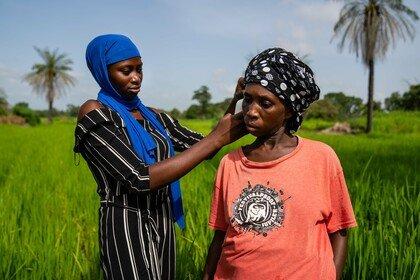
Designing global indicators for climate change adaptation
This policy briefing discusses the development of indicators for the Global Goal on Adaptation (GGA). These indicators will help prioritise health equity and positive health outcomes in response to climate change.
The briefing was produced by Wellcome to inform technical negotiators and influential observers in the lead-up to and beyond COP29.
Report at a glance
- Published:
- 7 November 2024
- Strategic programme:
- What's inside:
- The policy briefing outlines how to create indicators for climate adaptation that focus on health equity, offering principles and examples to measure progress effectively.
- Who this is for:
- Policymakers
- Creative commons:
Summary
Climate change is worsening existing health inequalities and adding new health threats. Many countries remain unprepared. It's crucial to prioritise health equity to ensure everyone is protected and resilient in the face of climate change.
As a tool to guide adaptation action, GGA needs strong indicators to track progress on health targets. Leveraging frameworks like the Sustainable Development Goals (SDGs) and World Health Organisation guidelines can help us build effective indicators.
Key recommendations
There are 5 principles suggested for health informed indicators.
- Indicators across thematic and dimensional targets should measure health outcomes, with health equity embedded throughout indicator methodology.
- Global and regional indicators are needed to account for the difference in climate induced health threats between countries and regions, while also allowing measurement of collective progress in building resilience.
- To be adaptation relevant, indicators should be climate informed.
- Indicator development should be evidence based and include the worldviews and values of Indigenous People and local and traditional knowledge.
- Indicator discussion and development should consider means of implementation.
Conclusion
The policy briefing advocates for collaboration between experts and parties to develop indicators that ensure health equity is at the core of adaptation efforts. These indicators will guide our actions, helping countries can manage climate change’s health impacts more effectively and equitably. Together, we'll make strides towards healthier, more equitable communities in a changing climate.


